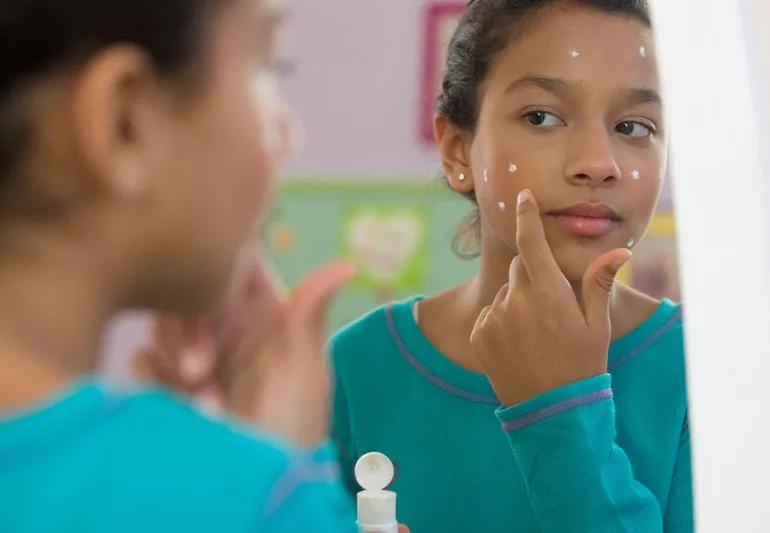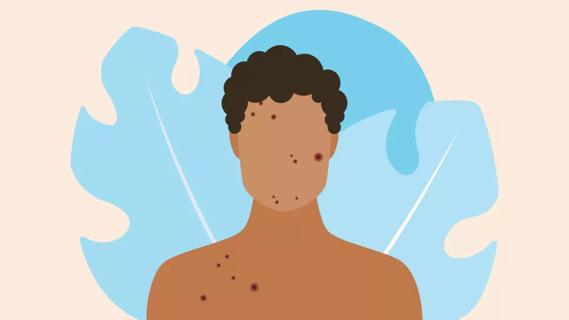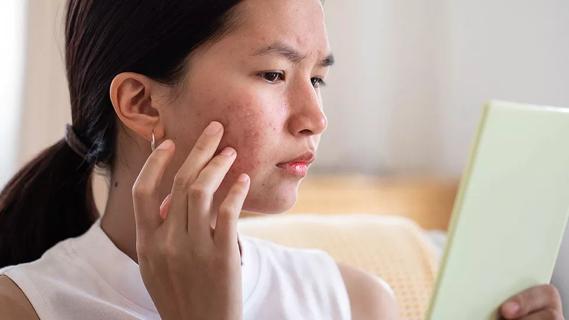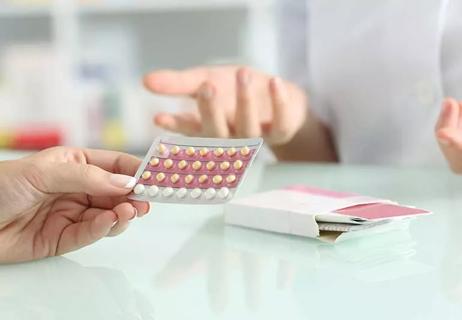Better, safer treatments are available

Health experts warn that taking too many antibiotics can do more harm than good. Just look at the increase in antibiotic-resistant “superbugs.”
Advertisement
Cleveland Clinic is a non-profit academic medical center. Advertising on our site helps support our mission. We do not endorse non-Cleveland Clinic products or services. Policy
That’s why more dermatologists tare trying to crack down on the long-term use of oral antibiotics for acne. Dermatologist Amy Kassouf, MD, says it’s not uncommon to see teens taking antibiotic pills for six months or longer.
“We need to stop that,” she says. “Today, the common belief is you shouldn’t take oral antibiotics for more than two or three months in a row.”
Antibiotics alone are not enough to treat acne. Acne is a complex condition involving four factors:
“Antibiotics will help control bacterial growth,” says Dr. Kassouf. “But if we don’t address the other factors as well, we won’t treat acne successfully.”
For the average kid or teen with acne, Dr. Kassouf recommends:
Advertisement
“Usually, we start with skin washes and add topical retinoids next,” says Dr. Kassouf. “We only add a topical antibiotic if the first two treatments aren’t enough.”
It’s critical to use topical antibiotics with benzoyl peroxide, she notes. Benzoyl peroxide kills bacteria in a different way than antibiotics. Using them together makes it less likely that bacteria will become antibiotic-resistant.
Oral antibiotics are for severe cases. However, applying antibiotics to the skin can cause fewer side effects than swallowing antibiotics that circulate through your body.
“In general, topical antibiotics can be used longer than oral antibiotics,” says Dr. Kassouf.
For severe acne that doesn’t respond to standard treatment, there are other options:
You may think of acne as a teenage problem, but it’s not uncommon for acne to appear around age 9. The earlier it comes, the earlier it may go. However, those who start puberty later may have acne into their 20s.
“Acne usually subsides on its own, but treatment is important if your child is bothered by his or her appearance,” says Dr. Kassouf. “It’s also important if you’re concerned about long-term effects. Severe acne can leave scars and cause skin discoloration.”
Advertisement
Learn more about our editorial process.
Advertisement

It’s best to avoid picking at zits, which can damage your skin (though there are ways to minimize the risk)

This medication only works well for short periods of time and when paired with other treatments

‘Zit stickers’ can help heal a new or popped pimple, but they’re limited when it comes to managing acne

Try exfoliating and using salicylic acid to treat this pesky skin care issue

Wear light, breathable clothing, shower after you exercise and change your sheets regularly

As you age, hormones can continue to play a big role in breakouts

Some remedies might help banish breakouts, but others are best avoided

Birth control pills with estrogen are best for fighting hormonal acne

Wearing a scarf, adjusting your outdoor activities and following your asthma treatment plan can help limit breathing problems

Your diet in the weeks, days and hours ahead of your race can power you to the finish line

When someone guilt trips you, they’re using emotionally manipulative behavior to try to get you to act a certain way